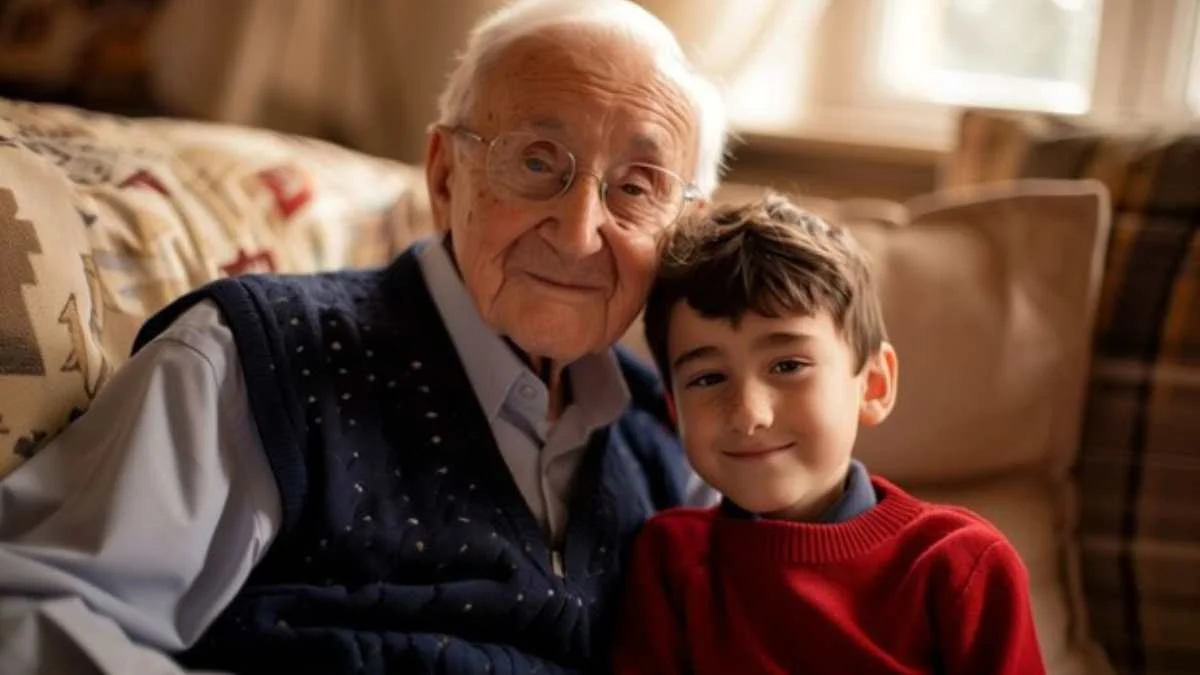HEALTH AND FITNESS
Why Some Seniors Need Help Even Though They Seem Healthy?

Introduction
Has your grandparent, parent, or another older family member who seems cheerful, active, and sharp have started acting a little differently? Do they forget things more often or struggle with simple daily tasks while smiling, walking, talking, and joking, just like always?
At first, you might think that it could be a sign of just aging, as it is normal for an individual to forget things sometimes. But over time, you may begin to notice that your brain might be having a harder time on the inside. They could be quietly struggling in ways that aren’t always easy to see.
Let’s take a closer look to understand why some seniors need help even though they seem healthy.
Table of Contents
Changes You May Notice in Seniors
Older adults begin to act differently as they might forget a name now and then. It might be hard for you to find out what’s going on. Some changes might be normal, but some might be serious and may happen over time. Some of the signs that could mean that a senior is going through something more than just getting older are:
- Forget where they are or how to get home.
- Keep asking the same question again and again.
- Can’t follow simple instructions anymore.
- Stop taking care of themselves, like brushing their teeth or dressing properly.
- Need help doing things they used to do on their own.
It might be the early stages of dementia, a condition that slowly affects memory, thinking, and daily life. You can get in touch with the professionals for a detailed assessment. Professionals use the FAST scale Dementia tool to measure patients’ functional status. Understanding this will help you give the right kind of care to your loved ones.
Simple Ways You Can Support Seniors Every Day
Noticing changes in an older family member might be confusing. You might be thinking, Should I say something? Am I overreacting, or might you be unsure, as many people are? Here are a few easy ways you can step in and help:
Be Patient and Kind
Sometimes, your loved one might forget things such as names, appointments, or even what they just said a minute ago. They may repeat themselves or seem confused about simple tasks. When that happens, take a breath. Try not to get upset as it’s not their fault. What they need most in such times is your kindness. Talk to them in a gentle tone. This calming response might be incredibly comforting to them.
Help with Daily Routines
Daily tasks that once seemed simple, like cooking a meal or sorting laundry, become overwhelming to seniors over time. Try to offer your help to them. You don’t have to take over. However, support by reminding them to take their medication, helping them choose clothes for the day, and setting phone or calendar reminders for appointments. It will ease their stress.
Spend Time Together
Sit with your loved ones. Sometimes, the best way to show you care is simply to be there for them. Go for a walk together. Put on their favorite music and let it spark memories or just enjoy the quiet together and build a stronger connection together.
Make the Home Safe
Your home might not feel as safe as it once did when seniors face mobility or memory changes. Therefore, you should look around and clear the cluttered walkways, and label drawers or doors so that they can find things more easily. It will help seniors feel more in control of their environment.
Encourage a Healthy Routine
Stick to a regular schedule. Encourage seniors to have the same wake-up and sleep time each day. Give them nutritious meals and suggest light exercise like a short daily walk or stretching. Also, encourage them to engage in activities such as reading aloud, working on puzzles, or even playing simple games to keep their brain engaged.
Talk to a Doctor Together
If you’re concerned, go to the doctor with them. You can share what you’ve observed, like things they might forget to mention. Early detection is important, and tools like theFAST scale for Dementia help professionals guide the next steps with clarity.
How Can You Take Care of Yourself?
Taking care of someone with memory problems is not easy. You may feel tired, sad, or even angry sometimes. So, it’s important to take care of yourself also. When you’re well, you’re better able to care for them.
- Try to get enough sleep.
- Talk to someone you trust about how you’re feeling.
- Take breaks when you need them.
- Ask others in your family to help.
You’re Not Alone — Reach Out for Support!
When someone you love is living with dementia, it can feel like you’re slowly losing parts of them. You don’t have to go through it all by yourself. Get support from friends, family, caregivers, or local organizations. You can also join local support groups and interact with families walking a similar path. These interactions will bring comfort, practical advice, and a sense of community when you need it most.
Conclusion
If an older person in your life is acting differently, don’t ignore it. Pay attention and talk to them. The sooner you begin to understand what’s happening, the more you will get prepared to support them.
Remember, you’re not alone in this. With support, patience, and the help of tools like the Dementia FAST scale, you can make a real difference in your loved one’s life. There are people, support groups, and experts who can help you and your loved one through this journey. It might feel like a lot sometimes, but just being there really matters.
-

 GENERAL7 months ago
GENERAL7 months agoChristofle – For Those Who Dream of Family Heirloom Silver
-

 SPORTS9 months ago
SPORTS9 months agoDiscover the World of Football with Streameast: Watch Your Favorite Leagues and Tournaments
-

 GENERAL1 month ago
GENERAL1 month agoUncovering the World of кинокрадко: The Dark Side of Film Piracy
-

 GENERAL4 months ago
GENERAL4 months agoATFBooru: Anime, Gaming, and Subculture Imageboard




























